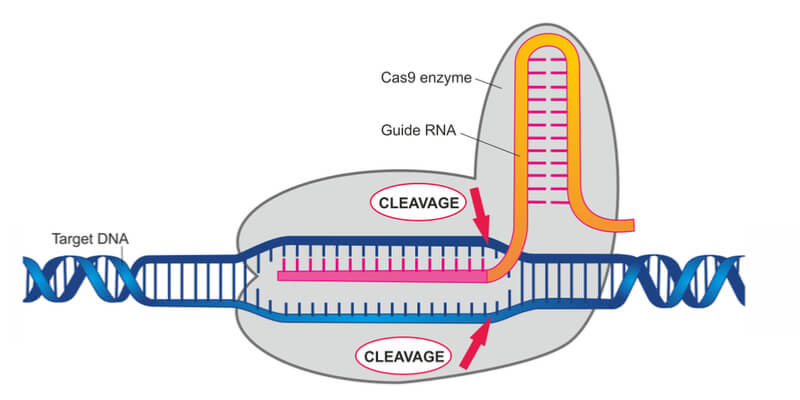Update (14/01/20): Horizon Discovery will offer partners access to a precise version of CRISPR gene editing technology it has licensed from researchers at Rutgers University in the US. After a year of research and development, the UK biotech has incorporated the base-editing technique into its drug discovery platform and will use it to develop better and more specific cell therapies.
Published 29/01/19:
The British company Horizon Discovery has obtained a license to develop a CRISPR-based gene editing tool from Rutgers University, USA, with potential applications in cancer and genetic disease.
Base editing is a modified version of the famous gene editing tool, CRISPR-Cas9. This next-generation technique is designed to edit single nucleotides, the building blocks of DNA, in a DNA molecule.
While CRISPR-Cas9 is great at editing longer sequences of DNA, base editing could be better at changing single nucleotides. CRISPR-Cas9 uses a protein enzyme that cuts through the two strands of a DNA molecule, which can lead to harmful off-target edits. In contrast, base editing enzymes edit a single nucleotide without cutting the whole molecule, potentially reducing the number of off-target edits.
“The technology we have licensed is an early stage platform technology which requires significant development to understand its applications across a wide range of possible uses,” Chris Lowe, Horizon’s Head of Research Operations, told me.

It’s too early for Horizon to decide on which diseases it could tackle using base editing, but potential applications could include genetic diseases and editing immune cells for cell therapy in cancer.
Horizon declined to disclose the financial details of the deal. The company has paid for the option to obtain an exclusive license for all therapeutic applications, and will help to fund base editing research at Rutgers University.
Horizon isn’t the only company with its eyes on base editing. The startup Beam Therapeutics was founded in 2018 based on a different form of base editing technology, developed in MIT and Harvard. Also at an early research stage, Beam is hoping to develop the tool to treat rare genetic diseases.
Another version of CRISPR-Cas9 that is attracting the attention of the biotech world is CRISPR-Cpf1, which is better at replacing one DNA sequence with another than CRISPR-Cas9. The German chemical company BASF obtained a license for this technique in October to increase its genetics toolbox for creating new crops and microorganisms for industrial microbiology.
Images from Shutterstock





